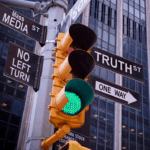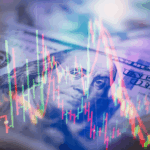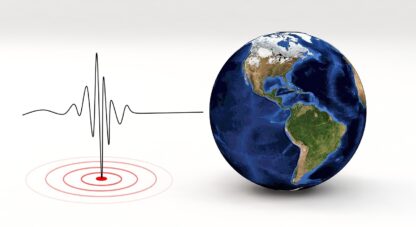View a Printable PDF Click Here
We were also privileged this month to speak with Jeffry Frieden, author most recently of Currency Politics, and professor of government at Harvard University where he specializes in the politics of international monetary and financial relations. Dr. Frieden is one of the most incisive intellects looking at the effects of economics on the nations of the world and on the global economy today. His most recent book, mentioned above, looks at the regional, national, and global priorities that are served when a nation has a particular monetary system in place. Whatever that nation’s exchange rate policy is, the policy determines who will win and who will lose economically in a given period of time. The winners and losers are determined very deliberately as an expression of who is intended to drive growth in the economy.
Archimedes told us that with a long enough lever, he could move the world. This month Dr. Frieden tells us how governments move, if not the world at least world markets, with currencies and exchange rates.
David: Let me start with something foundational. How do particular exchange rate choices, whether we are talking about the regime itself or the level, affect constituents, or economic agents?
Jeffry: Currencies and exchange rate policies receive far too little attention from both the public and people who are interested in business. Your question is absolutely central because I think that economists now recognize how important exchange rates are.
Everyone also recognizes now that exchange rates are immensely sensitive to national government policy and we all know that government policy is immensely sensitive to political pressures. So your question is central to what I do, and I think it is also central to some of the most important issues in the international economy.
You ask about two dimensions. The first is the regime, and the second is the level of the exchange rate. The regime is whether the currency is more fixed or more floating. Let’s think about it in terms of people. The people who are most likely to want a more fixed, stable exchange rate are people who trade across borders and across exchange rates – across currencies. These include international traders, commercial interests, financial interests, and borrowers and lenders.
Some of the most important people along these lines are people who have a lot of foreign currency debt. If you’re sitting in Lithuania, Brazil, or India, and you’ve borrowed a million dollars if you’re a firm or $100,000 if you’re a mortgage-holder, and that debt is denominated in dollars, the last thing you want is for your currency to depreciate. That is going to dramatically increase the burden of your debt. So those are the people that want the exchange rate to be stable – along with people who want low inflation, because a fixed exchange rate typically brings along with it low inflation.
On the other side are people who want a flexible exchange rate – people whose goods are very sensitive to prices because of competition with foreign producers. Farmers and manufacturers typically want exchange rates to be able to devalue or depreciate if they’re facing competitive pressures.
That brings us to the second dimension, which is the level. The people that are the most harmed by a strong exchange rate, that is, an appreciated, or strong currency, are the people who produce goods involved in world trade. We call them tradables producers – the manufacturers and farmers mentioned a moment ago. If you’re competing with foreign products on world markets or on your domestic market, the stronger your exchange rate is, the more expensive your products are. So, if you’re an American farmer or an American steel worker or auto maker, the stronger the dollar is, the more expensive your products are – both to Americans and to foreigners. That’s why when the dollar is strong the complaints come from the farm community; they come from the manufacturing community.
That is one reason why, for example, the current presidential campaign has seen so much discontent in the industrial states and so much concern about trade. The dollar is very, very strong. The strong dollar is putting a lot of pressure on American producers of goods involved in world trade. They want a weak currency. Is there a trade-off? Is there something good about a strong currency? Well, yes, a strong currency gives Americans a lot more purchasing power.
Americans live in a pretty closed economy with the reserve currency. When Americans think about the effect of a strong currency, mostly they think, “Well, if the dollar is strong I can go to Europe a lot more cheaply. But think of that in a broader context. A strong dollar means we can buy more of the world’s goods and services; our purchasing power is higher. So consumers benefit from a strong dollar.
If you want to put it in the starkest possible terms, the trade-off the government faces when choosing between a weak currency and a strong currency is that a weaker currency buys competitiveness in world markets and allows your producers to sell a lot more, both for domestic and foreign consumption. But the trade-off is that you are physically taxing your consumers. So a strong currency helps consumers; a weak currency helps producers of created goods and services. It’s a big contradiction, and it’s not a solvable one. You can’t split the difference. You have to make a choice.
David: You argue that currency policy is about as powerful as any single economic policy can be, and you frame that by saying that currency values have a powerful impact on the wellbeing of important economic actors, and indeed, the fate of national economies, more broadly. From a political perspective, isn’t the choice of currency system an expression of preference for one constituency over another?
Jeffry: You’re absolutely right. Life is full of trade-offs, and economic policy is no exception. When you choose to fix the exchange rate, you are giving up a very, very powerful tool of macro-economic policy. When you think of the 2008-2009 crisis, the principle response of all of the major economies to that crisis was in monetary policy. Now, we could argue about whether the response was correct or not, but I don’t think anyone would disagree that if countries had not had some ability to respond to the crisis with monetary policy flexibility they would have been in big trouble.
And in fact, we have an indication of that. There were countries in the eurozone that didn’t have a monetary policy of their own. They were either in the euro or they had fixed their exchange rate to the euro, and they had a terrible, terrible time. The Baltic states were fixed to the euro because they wanted to join the eurozone, and eventually did join the eurozone. They saw their GDPs drop by 20-25% in a year. They saw their unemployment rates go from four to almost 30% in a year because they didn’t have monetary policy as a tool. So there are great values to having a fixed rate, but there are great costs, as well.
How does a government choose between the benefits and the cost? Well, I think, being a political economist, they choose on the basis of the kinds of political pressures that they are responsive to. Sometimes governments are more responsive to the broad electorate, such as when an election is coming, and sometimes governments are more responsive to powerful concentrated special interests, such as perhaps in normal times. There is a very common observation, for example, that no government in Latin America will devalue the currency in the run-up to an election because what that is doing is impoverishing the electorate. At other times they are perhaps less concerned about the electorate.
The specific answer to your question is that governments face very difficult political trade-offs. How they make choices based on those trade-offs is largely something that is played out in the cauldron of domestic politics. It is not really a technical economic issue. There are good economic arguments for virtually any exchange rate regime or virtually any level of the exchange rate. It is really a political question.
David: There really is the question of how much of a gap there is between the political class and the Federal Reserve. There is supposed to be political independence, but that’s not always evident.
Jeffry: People talk a lot about central bank independence and most people are in favor of it, at least in principle. The reality is that there is no central bank in the world that isn’t sensitive to politics because central banks are creatures of governments. The Federal Reserve could be closed down tomorrow if Congress wanted to close it down, so it has to be sensitive to the political environment. Now they will never say that publicly, but it is the reality.
There used to be – I can’t remember who it was, but I think the chairman of one of the House banking committees that said that whenever the chairman of the Fed would come testify he, the congressman, would make sure that there were at least half a dozen bills in the hopper reducing the independence of the Fed. So central banks everywhere are navigating some difficult political shoals, and they have to. Listen, they are creatures of government. They weren’t created by Martians, they didn’t drop from the sky, they are creatures of government. And they are political, they have to be politically sensitive, and that is probably a good thing, but you want it to be in moderation. Where that moderation stands is a matter of debate, I suppose.
* * *
This interview has been edited for flow and readability. The interview transcript in its entirety can be read here.















